Durbar: The Royal Court Game
Experience the grandeur and challenges of ruling a kingdom in colonial India with Durbar: The Royal Court Game

📜 Overview of Durbar: The Royal Court Game
Durbar: The Royal Court Game is a popular mobile and desktop game developed by an Indian gaming studio that immerses players in the intricate world of Indian royal courts during the pre-independence era.
Released in 2020, the game quickly gained popularity across India and among the global Indian diaspora, offering a unique blend of strategy, role-playing, and historical simulation elements that resonate deeply with Indian culture and history.
The game's name, "Durbar," refers to the royal court assemblies where kings and rulers would hold audience, dispense justice, and conduct state affairs – a central element of governance in historical India.
What sets Durbar: The Royal Court Game apart from other strategy games is its authentic representation of Indian royal traditions, customs, and political dynamics, making it both entertaining and educational for players of all ages.
🎯 Core Objective
In Durbar: The Royal Court Game, players assume the role of a newly appointed ruler of a princely state in India. The primary goal is to strengthen your kingdom, gain the loyalty of your subjects, navigate complex political relationships with other rulers and colonial powers, and ultimately establish your dynasty as one of the most powerful in the subcontinent.
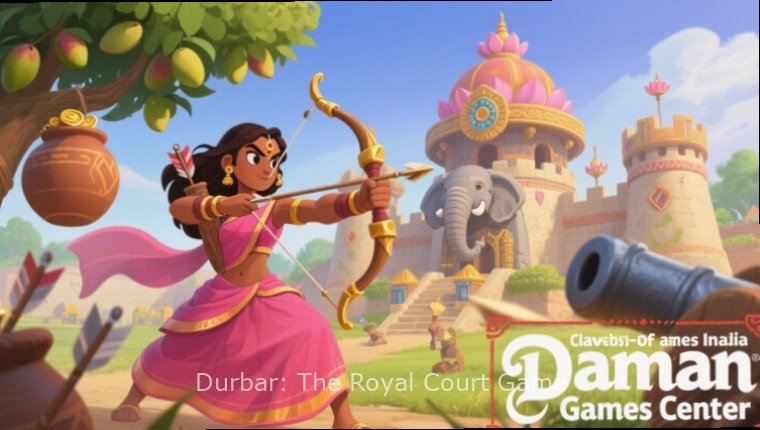
The game's development team worked closely with historians and cultural experts to ensure that the representation of different Indian kingdoms, their administrative systems, and cultural practices is as accurate as possible while maintaining gameplay enjoyment.
Unlike many historical games that focus solely on European history, Durbar: The Royal Court Game fills a gap in the market by celebrating India's rich royal heritage and complex political history, allowing players to engage with their cultural legacy in an interactive format.
🎮 Gameplay of Durbar: The Royal Court Game
Durbar: The Royal Court Game features a rich and complex gameplay system that combines several elements to create a truly immersive experience:
👑 Court Management
The heart of the game revolves around managing your royal court. Players must hold regular durbars (court assemblies) where they listen to petitions from subjects, resolve disputes, make laws, and address various issues affecting the kingdom.
Each decision you make in court affects different aspects of your kingdom – from public happiness and loyalty to economic prosperity and military strength. The game presents players with morally complex choices that often have no clear "right" answer.
For example, a farmer might petition for relief from drought, but granting it could strain the royal treasury. A merchant might request trade concessions that benefit the economy but anger local artisans. These dilemmas reflect the complex balancing act that real rulers faced.
🏰 Kingdom Development
Beyond the court, Durbar: The Royal Court Game requires players to develop their kingdom's infrastructure, including building and upgrading forts, palaces, markets, schools, and temples. Each structure provides specific benefits and contributes to the overall development of your realm.
Resource management is crucial, as players must balance the collection and allocation of various resources like gold, food, timber, and manpower to ensure sustainable growth and readiness for potential conflicts.

⚔️ Diplomacy & Warfare
No royal simulation would be complete without political maneuvering and occasional conflicts. In Durbar: The Royal Court Game, players must maintain diplomatic relations with neighboring kingdoms, colonial powers, and various factions within their own realm.
Forming alliances, negotiating trade deals, arranging marriages, and navigating the complex politics of the era are all part of the gameplay. When diplomacy fails, players can raise armies, fortify borders, and engage in strategic battles to protect their interests or expand their territory.
The game's combat system emphasizes strategy over brute force, with different unit types having specific strengths and weaknesses based on historical Indian warfare practices.
📜 Quests & Events
Durbar: The Royal Court Game features a dynamic event system that generates historical and fictional events based on the player's actions and the current state of the game world. These events range from natural disasters and rebellions to royal weddings and visits from foreign dignitaries.
The game also includes a quest system that guides players through various aspects of kingdom management while uncovering interesting stories and historical tidbits about different regions and cultures of India.
👪 Dynasty Management
As a long-term strategy element, Durbar: The Royal Court Game includes a dynasty system where players must manage their royal family, ensure a line of succession, and groom heirs to take over the throne.
Marriages can be arranged to strengthen political alliances or secure valuable resources, while educating children with different skills ensures that future rulers are prepared for the challenges of governance. The game tracks family trees across generations, creating a sense of legacy and continuity.
📊 Download Statistics for Durbar: The Royal Court Game
Since its release, Durbar: The Royal Court Game has achieved impressive download numbers, particularly in India where it has struck a chord with players interested in their cultural heritage.
📈 India Download Numbers
- Over 50 million downloads across all platforms in India as of 2023
- Consistently ranked in the Top 10 strategy games on Google Play Store and Apple App Store in India
- Recorded over 10 million monthly active users in India during festival seasons
- Highest download rates observed in Maharashtra, Uttar Pradesh, Rajasthan, and Tamil Nadu
- 25% year-over-year growth in downloads since 2021
- 40% of users engage with the game daily for an average of 45 minutes

🌍 Global Reach
While Durbar: The Royal Court Game is most popular in India, it has also gained a significant following among the Indian diaspora and history enthusiasts worldwide:
The game has been downloaded over 5 million times outside India, with strong player bases in the United States, United Kingdom, Canada, Australia, and the Middle East – regions with large Indian communities.
The game's English version has been particularly well-received in educational settings, with several history teachers using it as a supplementary tool to teach students about Indian history and governance systems.
⭐ Player Reviews of Durbar: The Royal Court Game
Durbar: The Royal Court Game has received generally positive reviews from players in India and around the world, with an average rating of 4.5/5 on Google Play Store and 4.7/5 on the Apple App Store.
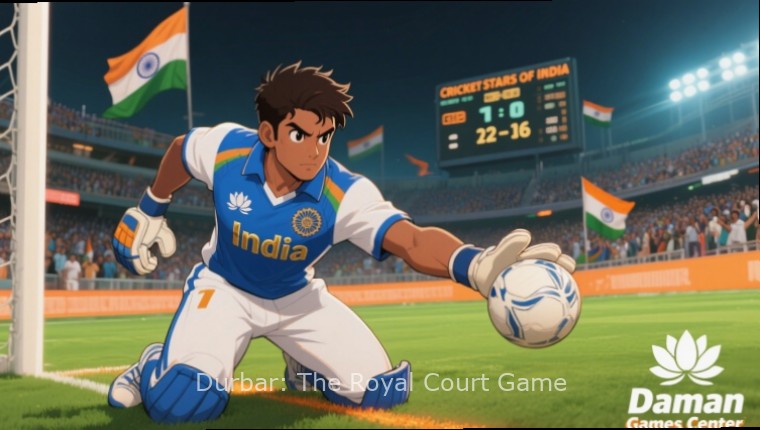
Ramesh Patel
Chennai, India
"As someone who loves Indian history, Durbar: The Royal Court Game is a dream come true! The attention to detail in court proceedings and cultural elements is amazing. I especially love how the game incorporates different regional traditions from across India. My children now ask me about our history because of this game!"
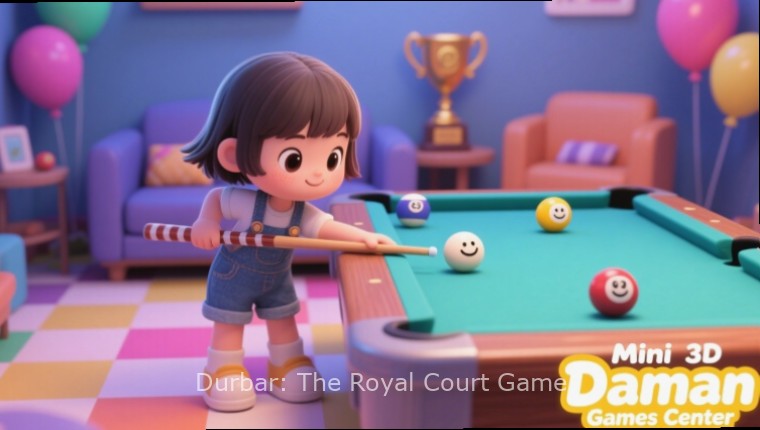
Priya Sharma
Delhi, India
"I've been playing Durbar: The Royal Court Game for over a year now, and I'm still discovering new features. The event system keeps things interesting, and I love how my decisions actually impact the game world. The only reason I didn't give 5 stars is that some updates can be slow to arrive."

Arjun Mehta
Mumbai, India
"The strategy elements in Durbar: The Royal Court Game are deep and satisfying. Managing resources while balancing political relationships keeps me coming back. The graphics are beautiful, especially the palace interiors. It would be great to see more regional customization options in future updates."
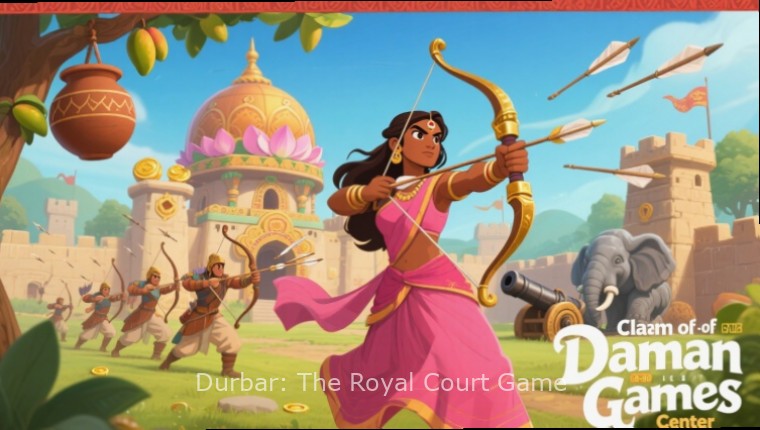
Anjali Nair
Bangalore, India
"I love how Durbar: The Royal Court Game educates players about Indian history while being entertaining. My children have learned so much about our culture through this game. The festival events are particularly wonderful and make me feel connected to our traditions, even when I'm busy with work."
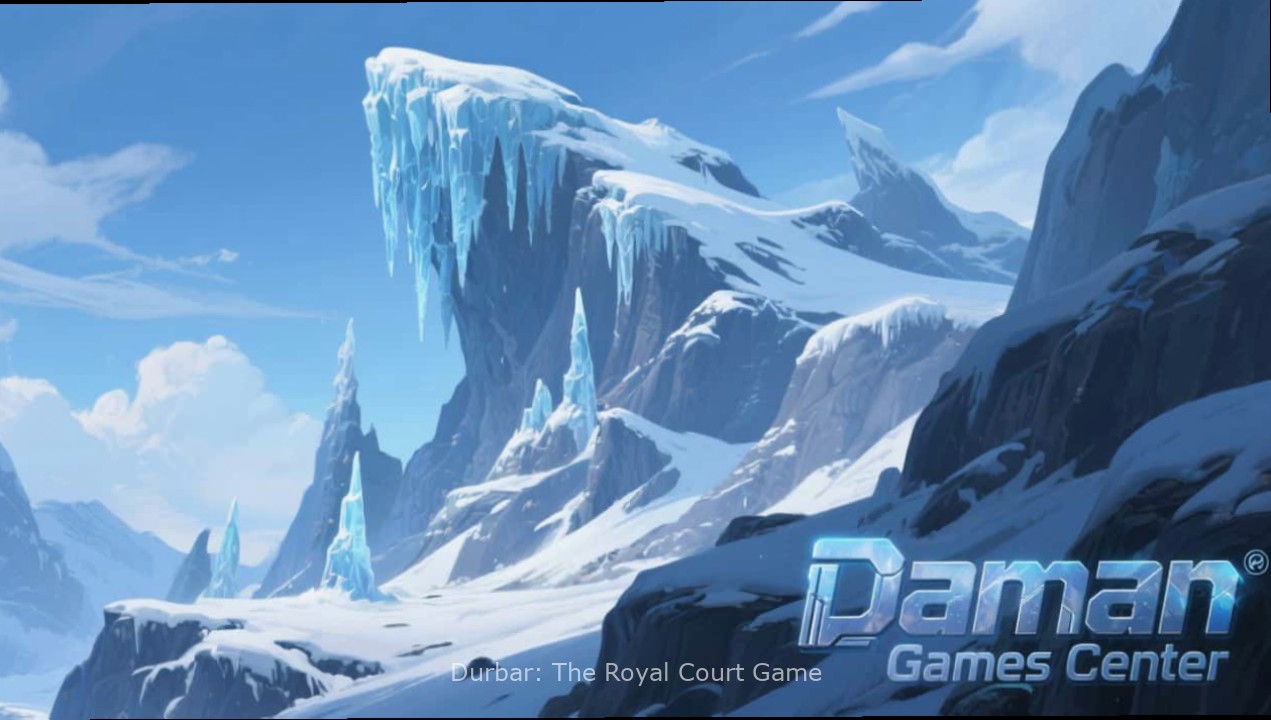
👎 Common Criticisms
While most reviews are positive, some players have noted areas for improvement in Durbar: The Royal Court Game:
- Occasional bugs during major updates, particularly with regional content
- Some players find the progression slow without in-app purchases
- Limited customization options for royal characters' appearance
- Server issues during peak times, especially during festival events
- Desire for more regional diversity in architectural and cultural representations
- Complexity can be overwhelming for new players
The developers have been responsive to feedback, regularly releasing updates that address many of these concerns while adding new content to keep the game fresh. They maintain an active forum where players can suggest features and report issues.
🌐 Localization of Durbar: The Royal Court Game
One of the key factors behind the success of Durbar: The Royal Court Game in India is its extensive localization efforts, making the game accessible to players across different regions and language groups.
🗣️ Language Support
The game currently supports 11 Indian languages in addition to English, ensuring that players can enjoy the game in their native tongue:
This extensive language support has significantly contributed to the game's popularity across different states in India, with regional language versions often outperforming the English version in their respective regions. For example, the Tamil version consistently ranks highest in Tamil Nadu and parts of Kerala.
The localization team works with native speakers to ensure not just direct translations, but cultural adaptation of idioms, proverbs, and historical references that might be unfamiliar to players from other regions.
🎭 Regional Variations
Beyond language, Durbar: The Royal Court Game features subtle regional variations to enhance authenticity and appeal to players from different parts of India:
🏯 Architectural Styles
Palace buildings and courtrooms feature architectural styles appropriate to different regions, from Rajput forts in Rajasthan to Dravidian-style palaces in South India and Bengali terracotta architecture in the east. When players select a starting region, the visual presentation of their kingdom reflects local building traditions.
👘 Clothing and Attire
Royal characters and courtiers wear regionally appropriate clothing, from the sherwanis and turbans of North India to the dhotis and veshtis of South India, reflecting the diverse sartorial traditions of the subcontinent. These details change dynamically if your kingdom expands to new regions or forms alliances with rulers from different areas.
🎶 Music and Sound
The game's soundtrack and sound effects incorporate regional musical instruments and styles, with different musical themes playing depending on the player's kingdom location and cultural choices. Players can hear everything from Carnatic music in South Indian kingdoms to Hindustani classical in the North, and folk traditions from various regions.

🎊 Festival Celebrations
Durbar: The Royal Court Game features special events and content tied to major Indian festivals, which are localized to reflect regional celebrations:
- Diwali celebrations with different traditions from North and South India
- Holi events with regional color traditions and songs
- Pongal and Makar Sankranti celebrations with region-specific activities
- Dussehra celebrations highlighting Ramlila in North India and Mysore Dasara in the South
- Onam celebrations with Kerala-specific traditions and boat races
- Ganesh Chaturthi events with Mumbai-style celebrations
These festival events have proven extremely popular among players, often resulting in significant spikes in active users and engagement during these periods. The Diwali 2022 event saw a 300% increase in daily active users compared to regular periods.
📝 Indian Player Strategies for Durbar: The Royal Court Game
Indian players have developed unique strategies for Durbar: The Royal Court Game based on their understanding of historical dynamics and cultural nuances. Here are some top tips from experienced players:
🤝 Balancing Relationships
"In the early stages, focus on building good relations with at least two neighboring kingdoms," advises Vijay from Jaipur, a top 100 player. "This creates a buffer against potential attacks while you strengthen your economy. Remember the principle of 'saam, daam, dand, bhed' (persuasion, reward, punishment, division) from ancient Indian statecraft."
Many Indian players emphasize the importance of strategic marriages to build alliances, with regional players often favoring matches with kingdoms that share cultural similarities in the game. "Marrying into a kingdom with similar traditions reduces cultural friction and makes alliances stronger," notes Shruti from Ahmedabad.
📈 Resource Management
Priya from Chennai shares her approach: "I follow the traditional 'panchayat' system - allocate 20% of resources to defense, 30% to infrastructure, 30% to agriculture and trade, and 20% to cultural projects. This balanced approach ensures steady growth without overextending in any one area."
Players from agricultural regions often prioritize irrigation projects early, while those from historically trading areas focus on market development first. "Coming from Gujarat, I know the value of trade networks," says Raj from Vadodara. "I always build my markets before forts - wealth can buy protection, but protection can't always buy wealth."
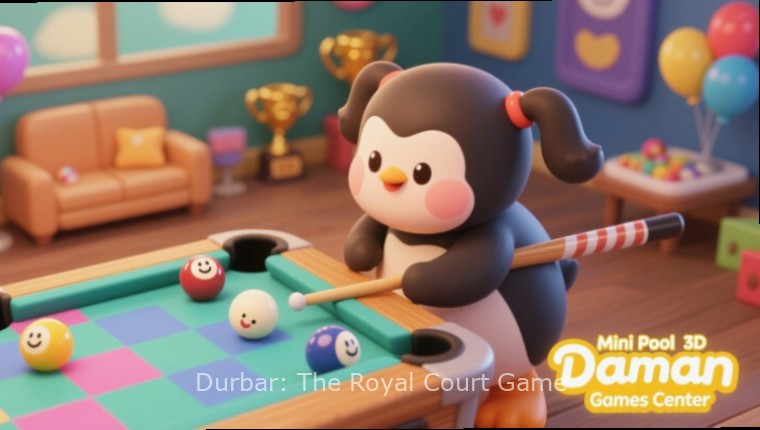
⚖️ Court Decisions
"Remember that in Indian culture, justice must be seen to be done," says Amit from Kolkata. "Even if a decision is economically costly, maintaining the perception of fair rule will prevent rebellions and keep your subjects loyal. Our history shows that popular rulers who dispensed fair justice lasted longer than those who focused solely on wealth."
Many players recommend alternating between strict and lenient decisions to maintain a balance that reflects the complex nature of royal justice in historical India. "Like the Mughal emperors, sometimes you need to be firm, other times merciful," advises Farhan from Hyderabad.
🎪 Festival Events
"Don't underestimate the power of festival celebrations," advises Deepa from Hyderabad. "Investing in grand celebrations during Diwali and Holi can boost public happiness for months, making it easier to implement difficult policies afterward. Plus, the special rewards during these events are often worth the investment."
Seasoned players often save resources specifically for festival events, knowing that the long-term benefits outweigh the short-term costs. "I start hoarding resources a month before major festivals," confesses Manoj from Pune. "The happiness boost and unique items make it completely worthwhile."
🏛️ Cultural Investments
"Many new players focus too much on military and not enough on culture," warns Anand from Madurai. "Building temples, supporting artists, and patronizing scholars increases your legitimacy as a ruler. In our history, the greatest kings were not just warriors but patrons of culture too."
This strategy mirrors historical patterns in India where rulers who supported cultural institutions often enjoyed greater legitimacy and longer reigns. "Your people need more than safety - they need pride in their kingdom," adds Anand.
👥 Community & Discussions around Durbar: The Royal Court Game
Durbar: The Royal Court Game has fostered a vibrant community of players across India, with active discussions and fan activities both online and offline.
📱 Social Media Groups
The game has numerous active social media communities, including:
- Facebook groups with over 2 million combined members
- WhatsApp groups for regional players, with some groups having over 500 members
- Active Twitter and Instagram accounts with hundreds of thousands of followers
- Reddit communities focused on strategy sharing and game updates
- YouTube channels dedicated to game tutorials and let's plays, some with over 100k subscribers
These communities often organize friendly competitions, share strategy guides, and discuss historical accuracy in the game. Many players enjoy comparing their in-game kingdoms with historical rulers from their regions. The Marathi player community, for example, frequently shares information about Chhatrapati Shivaji's administration to apply in their gameplay.
🏆 Local Tournaments
In major cities across India, Durbar: The Royal Court Game enthusiasts have organized local tournaments and meetups:
Mumbai Royal Challenge
A quarterly tournament attracting over 500 participants, with the winner receiving a replica royal sword and recognition in the game's next update. The tournament focuses on economic development rather than military conquest, reflecting Mumbai's trading heritage.
Delhi Durbar Meetup
Monthly gatherings at historical sites in Delhi where players discuss strategies while learning about actual royal history from local historians. Recent meetups have been held at Red Fort and Humayun's Tomb, adding historical context to gameplay discussions.
Chennai Kingdom League
A structured league with over 200 regular players who compete over several months to build the most prosperous kingdom. The league emphasizes cultural development and trade, with special rewards for preserving traditional arts in-game.
Jaipur Strategic Summit
An annual event that brings together top players for strategy workshops and friendly competitions. Held in a heritage hotel, the summit includes talks from historians about Rajput military strategies that can be applied in the game.

🎨 Fan Creations
The Durbar: The Royal Court Game community has produced an impressive amount of fan art, stories, and even traditional crafts inspired by the game:
Players have created detailed paintings of their in-game palaces, written fictional histories of their dynasties, and some have even crafted miniature models of their favorite game locations using traditional Indian craft techniques. A group of artisans from Rajasthan created a series of wooden carvings depicting famous in-game scenes, which were featured in the game's third anniversary update.
The developers regularly feature the best fan creations in their social media updates and have even incorporated some player suggestions into actual game updates. The addition of kite-flying events during Makar Sankranti, for example, came directly from player suggestions in the Gujarat community groups.
🎉 Localized Events in Durbar: The Royal Court Game
The developers of Durbar: The Royal Court Game regularly organize special in-game events tailored to Indian culture and regional traditions, keeping the gameplay fresh and engaging for local players.
🏛️ Historical Reenactment Events
These events allow players to experience famous historical moments from Indian history, taking on the role of legendary rulers:
- "The Great Maratha Empire" event focusing on Chhatrapati Shivaji's reign
- "Mughal Splendor" event centered on the reign of Akbar the Great
- "Vijayanagara Glory" event recreating the heyday of the South Indian empire
- "Rajput Valor" event highlighting the warrior kings of Rajasthan
- "Pandyas of Madurai" event focusing on Tamil trade and culture
🎑 Seasonal and Festival Events
The game calendar is filled with events tied to Indian festivals, each offering unique gameplay elements and rewards:
Diwali Celebration
Light up your palace, distribute sweets to subjects, and receive special fireworks displays. Players can collect unique lanterns and decorations.
Holi Festival
Organize color celebrations, with special rewards for spreading joy across your kingdom. Unique Holi-themed items and character skins available.
Raksha Bandhan Event
Strengthen alliances through symbolic rakhi ties, boosting diplomatic relations. Special sibling characters added during this event.
Pongal Harvest
Celebrate agricultural prosperity with special bonuses to food production. Unique bull-taming minigame and harvest celebrations.

🏅 Regional Competitions
The game regularly hosts competitions between players from different regions of India, with rewards that reflect local culture:
For example, the "Best South Indian Kingdom" competition rewards winners with special Dravidian-style palace decorations, while the "Rajasthan Challenge" offers unique Rajput architecture and cavalry units.
These regional competitions have helped foster friendly rivalries while encouraging players to learn about different parts of India. The "Unity in Diversity" event series brings players from different regions together to collaborate on in-game projects that reflect India's composite culture.